

29 January 2024
As we all continue to manage the challenges of global warming and biodiversity loss, it is important that the events industry embraces new and emerging technologies to play our part in contributing in the fight against climate change.
Last year, The Company of Biologists reinforced our commitment to making our Workshops more sustainable. We are now looking forward to our 2024 Workshop programme and will continue to implement all we have learned last year, as well as explore new ideas that can help mitigate the impact of our events. …
9 January 2024
Development’s Journal Meeting, Unconventional and Emerging Experimental Organisms in Cell and Developmental Biology, took place from 17 to 20 September 2023 at the beautiful Wotton House in Surrey, UK.
In the opening remarks of the Meeting, Katherine Brown, the Executive Editor of Development, made the case for the developmental biology field to expand their horizons. Traditional models like flies, mice, and fish, while invaluable, are not the be-all and end-all of developmental biology. The need for diversity in the study of life’s fundamental processes has become strikingly clear in recent years.
28 November 2023
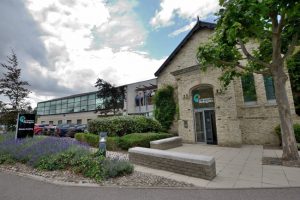
Accommodation and catering often has the second highest environmental impact of an event after transportation 1 2 3 and so choosing a sustainable venue for your event can make a big difference in your environmental impact. Venues are increasingly transparent about their sustainability measures and commitments, and information can be found on their website or by speaking with staff.
So what are the key factors to consider when looking for a sustainable venue?
24 October 2023
Travelling represents the largest carbon impact of an event. It can count for up to 56% of the whole event’s carbon footprint 1, and the impact is significantly higher when international participants use flights to reach the event.
With this in mind, we were delighted to award a Sustainable Conferencing Grant to Dr Serena Stanga who came with a solution that combined technology with alternative travelling, leading to a reduction in travel carbon footprint for her symposium “In pursuit of healthy brain aging: unveiling the biology of novel age-related mechanisms leading to dementia”, which was part of the 20th National Congress of the Italian Society for Neuroscience (SINS) 2. …
21 September 2023
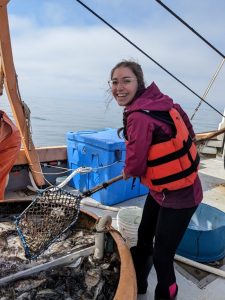
To develop her own understanding of tissue regeneration, Grace Holmes, a master’s student from the Royal Veterinary College, used a Travelling Fellowship from Development to visit the Echeverri lab at the Marine Biological Laboratory in Woods Hole, Massachusetts. There, she explored the role of Leucine Rich Repeat Kinase 2 (LRRK2), a protein associated with Parkinson’s disease in humans, in regeneration.
18 January 2024
Our Publisher Claire Moulton recently visited the two Woodland Trust UK sites where we are planting new native trees for published Research and Review papers and protecting ancient woodland on behalf of our peer reviewers.
20 December 2023
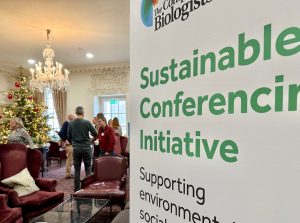
It is known that some organised events can create up to 2400 metric tonnes of CO2/eq, which has a significant impact in accelerating global warming. Every step taken to decrease the carbon impact of the event industry counts in the fight against climate change, and this is something which The Company of Biologists feels strongly about.
This year, we reinforced our commitment to decrease the carbon footprint of our scientific Workshops, working hard to implement new sustainable strategies during the organisation and implementation of our events.
We are excited to share with you some of our achievements from 2023 in tackling the carbon footprint of multiple aspects of our Workshops: …
24 October 2023
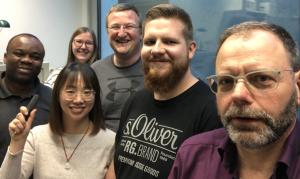
The mitotic spindle is crucial for proper chromosome segregation during cell division. Chromosome segregation takes place in anaphase and previous work has shown that the speed of this process depends on the structure of the spindle. Yitong Xu is a graduate student in Stefano Di Talia’s lab at Duke University, where she studies mitosis and microtubule dynamics in Drosophila melanogaster embryos. Yitong recently used a Travelling Fellowship from Journal of Cell Science to visit Dr Thomas Mueller-Reichert’s lab at the Technische Universität Dresden (TUD) in Germany, to conduct cryogenic electron microscopy (cryo-EM) observations of the Drosophila spindle.
Updated 9 April 2025
The scholarly communication landscape has changed profoundly over the past two decades, with a profusion of new publishing and subscription models from commercial and not-for-profit publishers. The increasing importance of Open Access (OA) – making research immediately and freely available to all – has presented challenges as well as opportunities for libraries, funding organisations, publishers and researchers alike.
14 September 2023
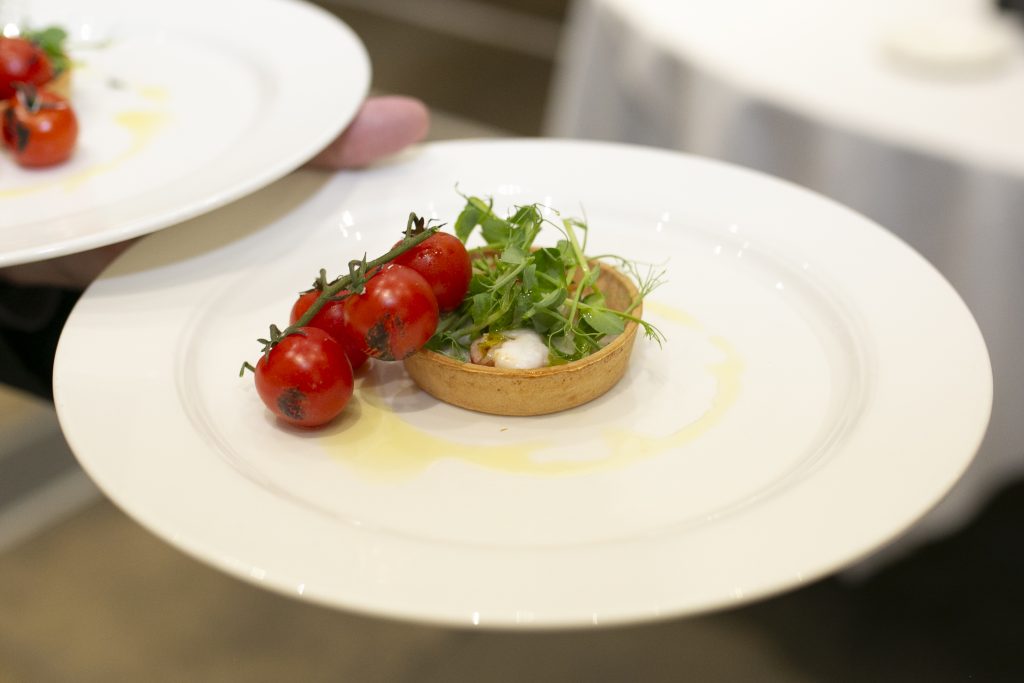
Event catering can account for 7-17% of event carbon footprint 1 2 3 . Conferences and scientific workshops play a crucial role in the career development of researchers, helping them to spread awareness about their work and connect with like-minded peers 4. Equally crucial is environmentally friendly practices at these events. Organisers can make a difference with eco-friendly menus and encouraging conscious choices.
But what does it take to build a sustainable menu? This is a guideline on how to build a sustainable menu for your next scientific meeting. …
You must be logged in to post a comment.